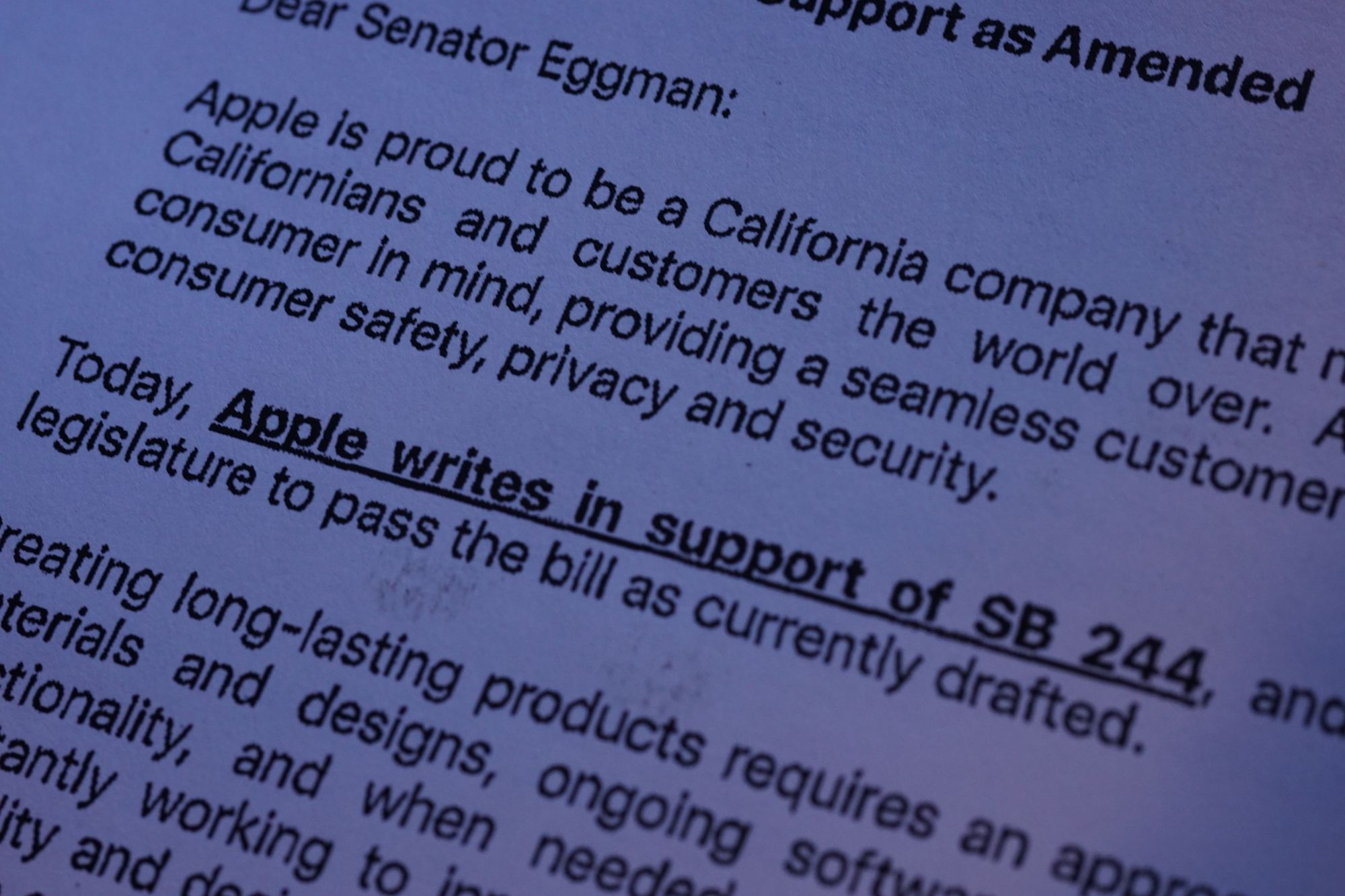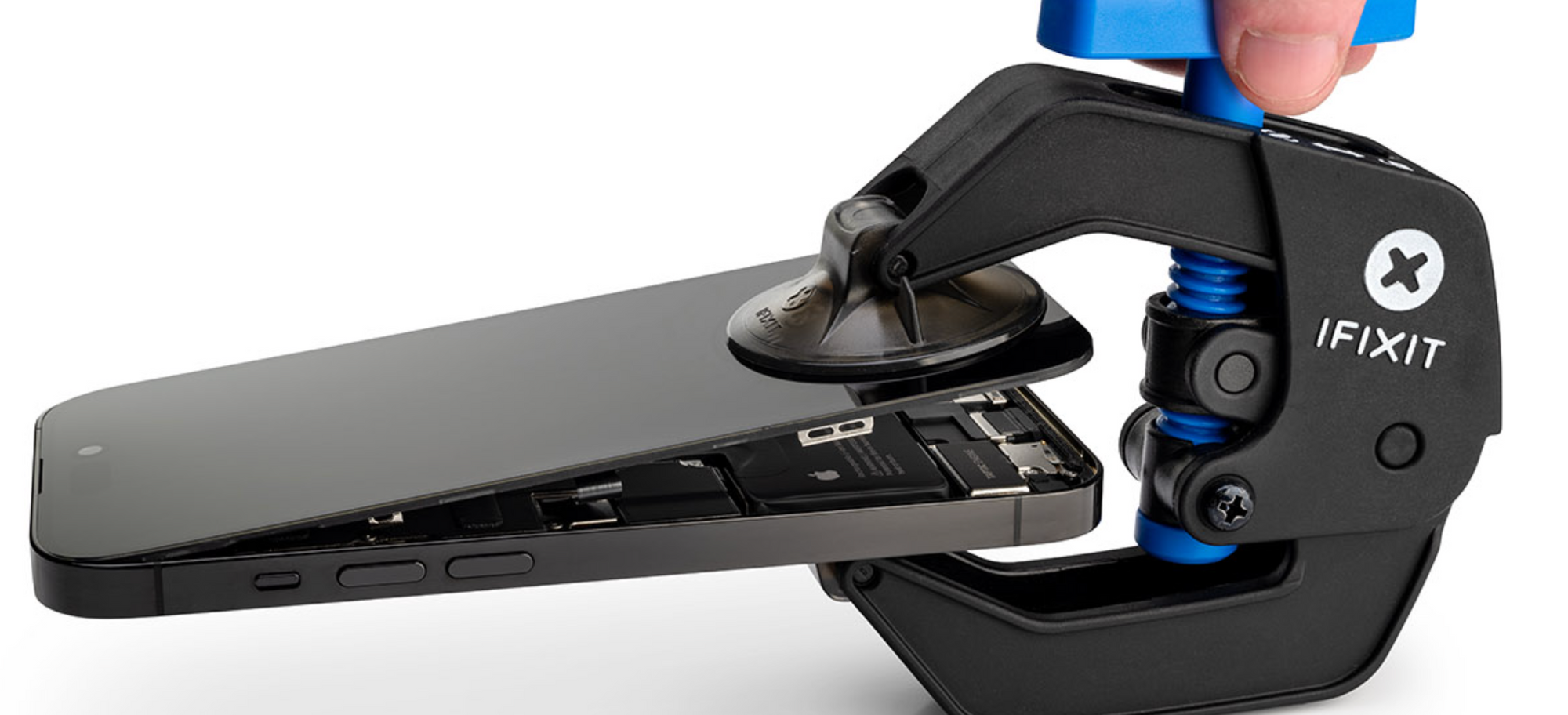Apple told a California legislator that it is formally supporting a right to repair bill in California, a landmark move that suggests big tech manufacturers understand they have lost the battle to monopolize repair, and need to allow consumers and independent repair shops to fix their own electronics.
“Apple writes in support of SB 244, and urges members of the California legislature to pass the bill as currently drafted,” Apple wrote to Susan Eggman, the sponsor of the bill, in a letter obtained by 404 Media. “We support SB 244 because it includes requirements that protect individual users’ safety and security, as well as product manufacturers’ intellectual property. We will continue to support the bill, so long as it continues to provide protections for customers and innovators.”

This is a landmark shift in policy from Apple, the most powerful electronics manufacturer in the world and, historically, one of the biggest opponents of right to repair legislation nationwide. It means, effectively, that consumers have won. The news was first reported by TechCrunch and iFixit.
“If California votes yes and continues to raise the bar on electronics repair from other states, it’s becoming obvious the fight is over, and that we’ve won,” Nathan Proctor, Senior Director of consumer rights group U.S. PIRG Campaign for the Right to Repair, told me. “It’s going to be show over for consumer electronics. There are other industries where this fight is going to continue, but if a strong bill passes in California, we’re winning.”
In May, the Right to Repair Act passed the California Senate 38-0. It has not yet been voted on in the State Assembly, but Apple’s support, in its home state, makes passage more likely. Over the last year, right to repair legislation for consumer electronics has been enacted by New York (though that bill was watered down at the last minute by Gov. Kathy Hochul) and Minnesota.
The legislation would require manufacturers “to make available, on fair and reasonable terms, to product owners, service and repair facilities, and service dealers, the means, as described, to effect the diagnosis, maintenance, or repair of the product.” This means manufacturers have to make the same diagnostics, tools, and parts available to the public as they make available to their own authorized repair professionals.
In its letter, Apple says it will support the bill as passed, so long as it continues to require independent repair professionals to disclose the use of “non-genuine or used parts” to customers and does not require companies to create new documentation for repairs that its own authorized providers don’t already do.
The goal for right to repair advocates has been to pass legislation in a series of states, leading to total capitulation by manufacturers unwilling to spend money lobbying against bills in dozens of states and terrified of having to comply with different legislation in different states. A law in California, the heart of the tech sector with a population of nearly 40 million people and support from Apple, is likely to become defacto national legislation. A similar thing happened with the auto industry when, after Massachusetts passed a right-to-repair law for cars, manufacturers agreed to abide by the law in all 50 states.
“I would think that passage in California means there’d be a lot of pressure on manufacturers to kind of set the line there and say ‘no farther,’ because we’ve now proven to them we can pass laws and change the ways they have to operate,” Proctor said. “This shows state advocacy is a good way to deal with large problems that are hard to get through Congress. It shows you can really spread big tech thin if you have a real grassroots network behind you.”
Apple’s move represents a sea change from where the tech giant was just several years ago, when its lobbyists were telling lawmakers that allowing consumers to repair their iPhones would turn specific states into a “Mecca” for hackers and bad actors. Apple and other electronics manufacturers, represented by large industry lobbying groups, have spent millions fighting right to repair legislation, which would require them to make repair manuals, parts, and tools available to the general public.
Slowly but surely, thanks to activists and consumers, as well as support from the Biden administration, manufacturers have realized that they need to take steps to make repair more accessible. Microsoft, Apple, Google, Motorola, and Samsung have all introduced ways to purchase parts directly from the company or from authorized third parties like iFixit.
While this is a huge step forward for the right to repair consumer electronics, the fight will rage on in other industries. Agricultural giants like John Deere and medical equipment manufacturers still hold great power to prevent consumers and independent repair shops from fixing equipment due to an inability to get parts and artificial software and diagnostics locks that keep customers out.


